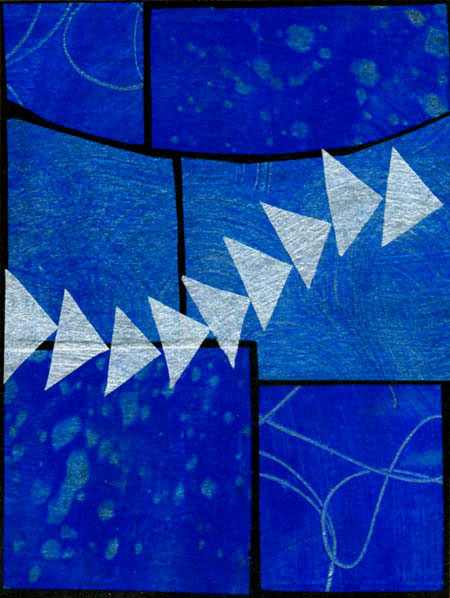
Of Water and Spirit © Jan L. Richardson
This afternoon I headed down to church for the first session of a writing class I’m offering over the next six weeks. Called The Story of You, it invites folks to do some written storytelling about their lives. In this kind of class I operate on the notion that chronology is just one of the ways—and sometimes the least interesting way—to tell our lives. Instead, we’re exploring ways we can write our stories around various themes such as traditions, travels, food, relationships, and other things that we have built our lives around over the course of years.
In preparing for the class, I’ve been doing some noodling on my own life and what I’ve shaped it around. (I’m sure being 40 has something to do with this noodling as well.) I’m aware that, like most folks, there are certain episodes in my life that I might like to revisit, but I’m really clear that I wouldn’t want to go back to any part of it for any length of time. Return to 15, or 25, or even 35? I’m grateful for those times, but, hoo, boy.
I find myself wondering if Nicodemus had something of the same thing on his mind. This week’s Gospel lection, John 3.1-17, invites us to listen in on his nighttime conversation with Jesus. Nicodemus is perplexed to hear Jesus talk about being “born from above.” “How can anyone be born after having grown old?” he asks. “Can one enter a second time into the mother’s womb and be born? …How can these things be?”
It’s hard to tell, of course, just how these words sounded on Nicodemus’s lips, but the way I imagine it in my head, his note of incredulity conveys that he’s asking not only how can anyone be born again but why would anyone want to? Having grown old, why on earth would someone desire to go back to the beginning?
This passage reminds me of one of the things that I really like about Jesus: he doesn’t strike people dead for asking questions. I find that quite an endearing quality in a deity. We encounter lots of questions in the season of Lent; the lectionary presents them to us nearly every week, from the prophet Joel who asks, on Ash Wednesday, “Why should it be said among the peoples, ‘Where is their God?'” to Jesus’ own cry on Good Friday, “My God, my God, why have you forsaken me?” Many of the Lenten questions are directed specifically toward Jesus, and he receives them and uses them in his ministry. He recognizes that questions are a form of spiritual practice: they remind us that we are in progress, and they invite us to lean into and stretch beyond the limits of what we know. Though Jesus may appear impatient with the questioning Nicodemus, he does not silence him or shut him out.
I suspect that Jesus’ willingness to engage folks in this way had something to do with the fact that he was born to a woman who was willing to ask questions. How can this be? Mary had asked the audacious angel. Gabriel hears her out, and Mary’s question gives way to conception.
For both Mary and Nicodemus in these stories of birth, the answer to How can this be? doesn’t depend on what we can see with our eyeballs or know with our rational minds. It’s a Spirit thing. “The Holy Spirit will come upon you,” the angel tells Mary. “Very truly, I tell you,” says Jesus to Nicodemus, “no one can enter the kingdom of God without being born of water and Spirit.”
In responding to Nicodemus’s question, Jesus interrupts our tendency to think that chronology has the final power over our lives. He claims, rather, that there’s something more than linear time, with its physical progression from birth to death, at work in us. There is another way of being that is open to us.
Jesus chooses the image of birth as a way to describe the passageway that he offers to us. His choice of the metaphor of birth offers a dizzying wealth of implications to sort through. In this context, I’m particularly drawn to the fact that such a metaphor implies that there is a process involved in what Jesus is talking about. Birthing involves gestation, and labor, and the beginning of perpetual change. When we are born, we achieve a new state, but not a static one.
Physically, we don’t enter the world as adults (let the laboring women say hallelujah); likewise with spiritual birth. The fact that we don’t start out full-formed in our faith ought to check any impulse to be overly judgmental about where we—and others—are on the journey. I’ve seen parts of this amazing lectionary passage used more as a bludgeon—BELIEVE! BELIEVE! BELIEVE OR BE DAMNED!—than as a doorway of invitation. Seeking to grow up, and to grow deep, we should ever seek out those who are wiser, those who are more practiced in this growing thing than we are, even as we hold the spiritual door open for others. This passage compels us toward humility and hospitality, those twins.
From conception to delivery and beyond, the process of birth is intimate work. A lot of it happens in the dark, figuratively as well as literally. So it seems especially appropriate that Nicodemus and Jesus have this conversation at night. So much easier, sometimes, to talk in the shadowed hours, when the questions that the day has kept at bay can now steal forth, and the people who might judge are not present to see, and in the cloistering dark we can speak of what is intimate and eternal.
“The wind blows where it chooses,” Jesus says to Nicodemus in that nighttime visit, “and you hear the sound of it, but you do not know where it comes from or where it goes. So it is with everyone who is born of the Spirit.” Perhaps it was this quality of the Spirit that inspired Christian folk in Celtic lands to choose the wild goose as an image of the Holy Spirit. Unpredictable, untamed, the goose flies in formation with its companions, offering strength that makes the arduous journey easier. Like a midwife, or someone who holds our questions in the dark. I thought of that ancient Celtic image as I created the collage for today; it borrows from a quilting pattern called Wild Geese.
So how’s that birthing and growing thing going for you? How do you deal with the sometimes wild unpredictability of the process? In this season of Lent, do you have a practice that helps you reflect on where you are, and where you have been? What questions are visiting you in the dark?
Blessings to you as you live into the birthing. May you have a good goose along the way.
[To use this image, please visit this page at janrichardsonimages.com.]

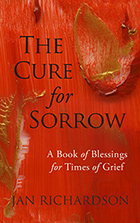
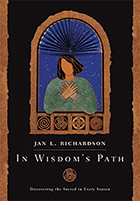
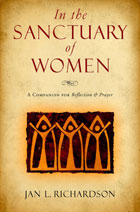
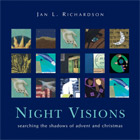
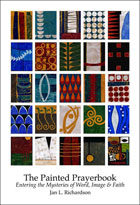
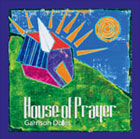
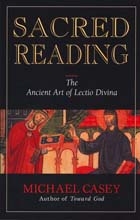
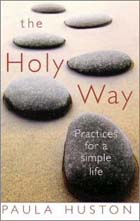
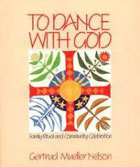
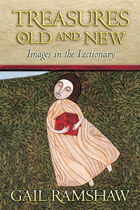
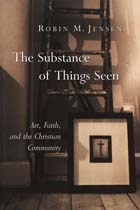
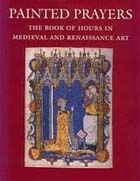
May 8, 2008 at 8:14 PM |
You write beautifully and you with soul , you have that gift.
in this moment of my (42) years old, i am in the best moment of my life and in the sharpest one in terms of consciousness. And consciousness of our darkness …hurts.
Consciousness makes me free but as a giving birth labour, pain is part of the process. And I always wanted to feel the pain in my 3 “partos”. So I feel that I like to IMAGINE myself soaring like a wild goose. :)
thanks for your text
frederica